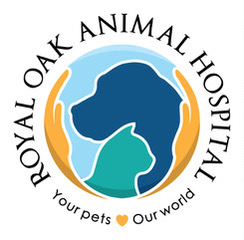Ferret Vaccinations
What vaccinations are available for ferrets?
 There are two vaccinations available for ferrets: the distemper virus vaccination and the rabies vaccination.
There are two vaccinations available for ferrets: the distemper virus vaccination and the rabies vaccination.
- Distemper has a high degree of mortality, so vaccination against this disease is crucial. The distemper virus can be transmitted by dogs and by ferrets that are carriers of the virus or are currently infected by the virus.
- Rabies virus vaccinations are also important. Currently, two companies have gained approval from the United States Department of Agriculture (USDA) for rabies vaccination in ferrets.
At what age should ferrets be vaccinated?
Ferrets should be vaccinated with the distemper vaccine at 6–8 weeks of age, and then every 3 weeks until they reach 12 weeks of age. Like dogs and cats, the youngest a ferret can receive a rabies vaccine is 12 weeks of age.
Is it necessary to vaccinate my ferret with the distemper vaccine?
Ferrets should be vaccinated against the distemper virus if they are exposed to unvaccinated dogs, allowed to play outdoors where dogs also play (such as a park or playground), or if they could encounter sick or unvaccinated ferrets.
Ferrets have shown to maintain their immunity for longer than one year once they have been fully vaccinated against the distemper virus, so many veterinarians propose checking vaccine titers every 1–2 years to determine your ferret’s immunity against the distemper virus.
Is it necessary to vaccinate my ferret with the rabies vaccine?
Depending on the state, city, county, or parish you live in, your ferret may be required to have a yearly rabies vaccine and a yearly rabies vaccination certificate. Your ferret will receive 1 mL of the rabies vaccine, just like a dog or cat.
Are there any side effects for either the distemper or rabies vaccine?
 Photo courtesy of Dr. Gregory Rich, DVMA small percentage of ferrets have been known to have serious vaccine reactions to both the rabies vaccine and the distemper virus vaccine. The reaction is anaphylactic and primarily involves the gastrointestinal system. If your ferret has a reaction to one of the vaccines, they may have dry heaves that may progress to projectile vomiting and/or diarrhea.
Photo courtesy of Dr. Gregory Rich, DVMA small percentage of ferrets have been known to have serious vaccine reactions to both the rabies vaccine and the distemper virus vaccine. The reaction is anaphylactic and primarily involves the gastrointestinal system. If your ferret has a reaction to one of the vaccines, they may have dry heaves that may progress to projectile vomiting and/or diarrhea.
Ferrets with vaccine reactions generally begin showing symptoms within 5 to 20 minutes of receiving the vaccination. Treatment to reverse the vaccine reaction will require intravenous injections of dexamethasone and diphenhydramine (Benedryl®.
Most veterinarians that treat ferrets will preemptively give a dose of diphenhydramine before vaccinating your ferret to help prevent vaccine reactions.
The rabies vaccine is a killed vaccine and the distemper vaccine is a recombinant vaccine, so neither vaccine will cause a mild case of the respective disease.
© Copyright 2025 LifeLearn Inc. Used and/or modified with permission under license. This content written by LifeLearn Animal Health (LifeLearn Inc.) is licensed to this practice for the personal use of our clients. Any copying, printing or further distribution is prohibited without the express written consent of LifeLearn. This content does not contain all available information for any referenced medications and has not been reviewed by the FDA Center for Veterinary Medicine, or Health Canada Veterinary Drugs Directorate. This content may help answer commonly asked questions, but is not a substitute for medical advice, or a proper consultation and/or clinical examination of your pet by a veterinarian. Please contact your veterinarian if you have any questions or concerns about your pet’s health. Last updated on Jan 30, 2025.


